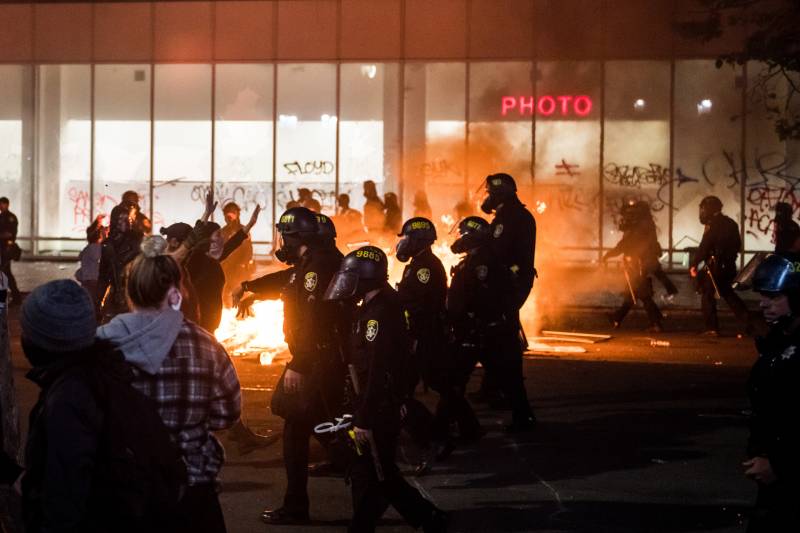The city of Oakland, its interim police chief and several Oakland Police Department officers are facing a class-action lawsuit over their handling of protests that erupted in late May in the wake of the Minneapolis police killing of George Floyd.
A coalition of social justice groups filed the suit Thursday night, alleging some OPD officers unlawfully attacked Black Lives Matter protesters.
The plaintiffs, including some of the demonstrators, the Anti Police-Terror Project and the Community READY Corps, are seeking monetary compensation for injuries sustained during the protests. They’re also requesting an injunction that would ban Oakland police from using crowd control weapons like tear gas, rubber bullets and flash-bang grenades.
The lawsuit alleges OPD knowingly broke their own court-ordered crowd control policies, which stipulate that physical force be used only as a last resort. It states that protesters were tear gassed, hit directly by rubber bullets and burned by flash-bang grenades while they were walking alway from a peaceful demonstration in downtown Oakland on June 1, well before the city’s 8 p.m. curfew.
But the burden of proof to meet all of the claims made in the complaint will be hard to reach, said Robert Weisberg, a law professor at Stanford University.

